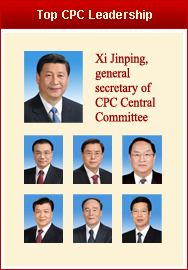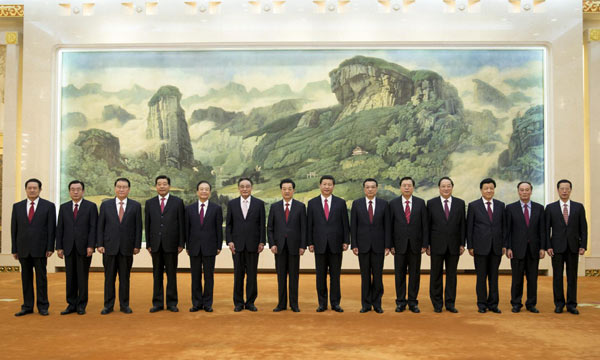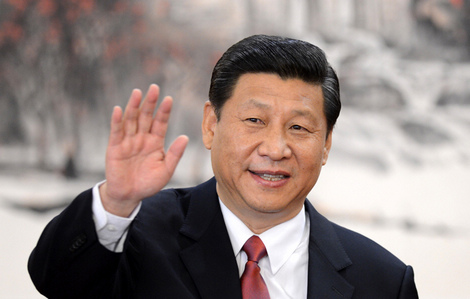Ecological progress highlighted in report
By Han Lei (China Daily)
Updated: 2012-11-09 08:03
President Hu Jintao placed unprecedented importance on ecological progress on Thursday.
In his report to the 18th National Congress of the Communist Party of China, he underscored the huge environmental challenges facing the world's second-largest economy after decades of spectacular growth.
He drew a parallel between ecological progress and economic and political development. "We must fully implement the overall plan for promoting economic, political, cultural, social and ecological progress," Hu told the delegates at the opening of the congress.
He said promoting ecological progress is a long-term task of vital importance to people's well-being and to China's future.
Hu's comments come as the country faces severe environmental pollution, a deteriorating ecosystem and increasing resource constraints, with 57 percent of its petroleum coming from imports, up from 32 percent at the start of the century, according to the White Paper on China's Energy Policy 2012.
A survey in 2006 by the Ministry of Environmental Protection showed that about 8 percent of China's farmland, or 10 million hectares, was polluted by industrial, mining and farming activities.
The nation must raise ecological awareness of the need to respect, accommodate and protect nature, Hu said.
He called for increased efforts to conserve resources and bring about fundamental changes in the way resources are used, as the country has been adopting a series of measures in this regard, such as eliminating industries with high consumption and high pollutant emissions, better insulation of homes and offices to cut heating bills, and the introduction of alternative-fuel cars.
"We should keep more farmland for farmers and leave to our future generations a beautiful homeland with green fields, clean water and a blue sky," he said.
China cut energy consumption per unit of GDP by 19.1 percent from 2006 to 2010, and aims for another 16 percent decrease from the 2010 level in five years. It also aims to reduce its carbon intensity, or its emissions of carbon for each unit of its GDP, by 17 percent by the end of 2015, from 2010.
Hu also called for major projects to be launched to restore the ecosystem, like those to control desertification, stony deserts and soil erosion, enlarge forests, lakes and wetlands, and protect biodiversity.
The country's stony deserts cover 113,500 square kilometers, accounting for more than 1 percent of its land area, and have been expanding steadily, according to statistics from the Ministry of Land and Resources.
At the 17th CPC National Congress in 2007, Hu raised the concept of ecological progress for the first time in his political report. His renewed call reflects a growing consensus among Party members.
Xu Zhaojun, Party chief of Jixi, a coal-mining city in Northeast China's Heilongjiang province, described it as the most impressive point in Hu's report.
Xu is trying to strike a balance between economic and ecological progress. "I want not only gold coins, but also green mountains and clean water."
hanlei@chinadaily.com.cn
??????????????????????????????????????????(China Daily 11/09/2012 page5)

Top News
Xi emphasizes adherence to CPC Congress spirit
Top legislator urges implementation of congress spirit
Moderately prosperous China brings chances to world
Video







